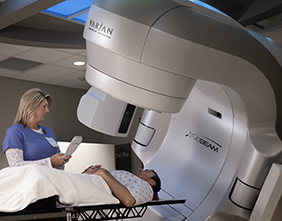Living with Congestive Heart Failure
posted on: 10/16/2018 8:36:29 AM
Health & Fitness Guest Columnist
Jamie Verhoff, RN, BSN, CHFN
Lima Memorial Congestive Heart Failure Clinic Coordinator
According to the Centers for Disease Control and Prevention, there are nearly 5.7 million Americans living with heart failure. Sadly, almost half of people who develop heart failure die within five years of diagnosis. Further, heart failure is currently the leading cause of 30-day hospital readmission in the United States. For these reasons, there has been a growing interest in creating a comprehensive, multidisciplinary heart failure clinic that is able to serve patients through the continuum of care, and that is exactly what we did at Lima Memorial. The team at the Congestive Heart Failure Clinic at Lima Memorial Health System is working hard to help people diagnosed with heart failure continue to live active, fulfilling lives.

Simply put, heart failure is when the heart is not pumping as effectively as it should and has a hard time pumping enough blood to the body. Unfortunately, there is no cure for heart failure, and most people diagnosed with heart failure occasionally have “flare-ups,” where they will retain fluid in their legs, belly and sometimes even their lungs. These flare-ups are one of the biggest complications of heart failure and ultimately can lead to hospital stays and worsening heart function. This is where a comprehensive heart failure clinic comes into play. The prevention of flare-ups will not only prevent the costly hospital admissions, but will also help the patient feel better and live longer.
There are many options available to treat heart failure and prevent flare-ups. First, it is important for patients to see their physician routinely to ensure they are getting the right medications and treatments. There are numerous medications that help heart failure patients feel better and live longer, but these should always be taken with close physician follow-up. Aside from medications, there are many easy lifestyle changes that will help prevent flare-ups and, more importantly, improve the heart function. These include:
- Eating a heart-healthy, low-sodium diet rich in fruits & vegetables, whole grains, low-fat dairy, skinless poultry & fish, nuts & legumes and non-tropical vegetable oils. This also includes limiting saturated fat, trans fat, cholesterol, red meat, sweets and sugar-sweetened beverages.
- Tracking your daily fluid intake and following your doctor’s advice regarding fluid intake. It is important to get enough fluid, but too much fluid can overwhelm an already strained heart.
- Weighing yourself and recording your weight daily.
- Moving and exercising. If you’re not physically active, talk to your doctor about starting an exercise regimen. Walking is one of the best exercises for heart patients.
- Getting enough rest and managing stress.
- Refraining from tobacco use.
- Avoiding or limiting alcohol consumption to less than two drinks per day for men and one drink per day for women.
- Avoiding or limiting caffeine intake by not exceeding two cups a day.
While these recommendations help prevent flare-ups, it is important to monitor for symptoms daily because they could still occur. I cannot emphasize enough, recognizing flare-ups early and seeking treatment immediately can keep patients out of the hospital.
At the Lima Memorial Heart Failure Clinic, we provide personalized care with specialized nursing for heart failure patients. We ensure patients are receiving the most appropriate therapies while encouraging patients to be active participants in their health care by providing them personalized and extensive education. One of my favorite quotes from the American Association of Heart Failure Nurses is “you drive, we’ll navigate.” We are a team and are happy to provide our patients the tools and education they need to manage their heart failure and live their best life.
If you are experiencing shortness of breath, swelling, weight gain, persistent coughing or wheezing, fatigue or abdominal bloating and lack of appetite, please contact the Lima Memorial Heart & Vascular Institute at 419-224-5915 to learn more about cardiac testing.
Originally published in The Lima News Health and Fitness section.
Website





